Growing a vegetable garden is great for mind and body, better for your wallet, good for the earth (if done right), and you get food!
Originally published May 2017; this post has been updated.
Grow Some Food
My job here, as I see it, is to convince you to grow some of your own food. It’s a big step. For someone who has never done it before, it can seem overwhelming to plant a vegetable garden. And you might convince yourself it’s not worth the effort. But it is. It IS. Here’s why.
New to gardening? Limited on space? The 5-Gallon Garden gives you the skills you need to grow food in the space you have. Get started with your garden today!
1. Quality and Flavor
I once knew a guy who mocked me for growing my own tomatoes. “You can get them at the store!” he told me. He was a city guy, just moved to the country. I assured him that homegrown tomatoes were much more flavorful. He didn’t buy it, and certainly wasn’t interested in starting his own vegetable garden, despite the fact that he was a landscaper.
Access to homegrown tomatoes shared freely by gardening friends quickly changed his mind. The following year he grew his own. Homegrown tomatoes are superior in flavor, bar none. [Here’s how to grow tomatoes in a container – you can do it on your patio!]
The same is true for other homegrown vegetables as well. Experiment with different varieties and you’ll be amazed at the depth of flavor.
Grow Some Greens!
Ready to grow fresh greens, no matter WHERE you live? Sign up for my
FREE quick-start guide and start growing some of your own food!
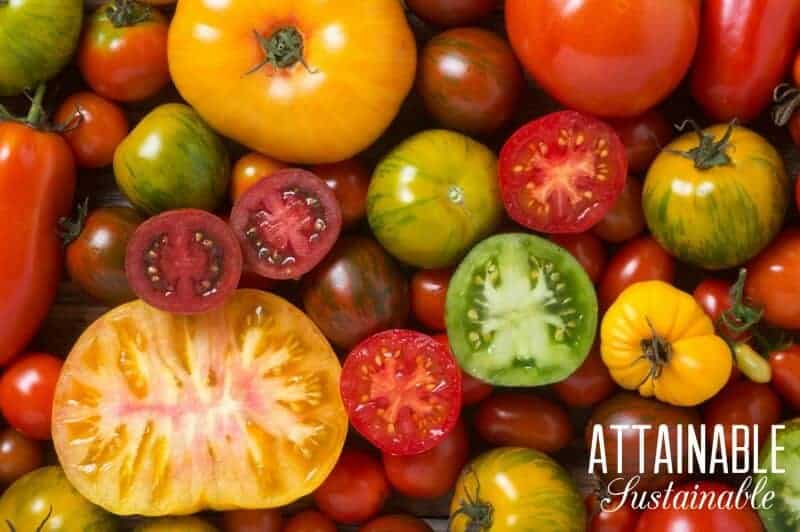
2. Grow Food, Eat More Vegetables
How many times a week do you hear that we should eat more vegetables? I can almost guarantee that if you’re growing a garden you will, indeed, eat more vegetables.
You’ll eat them standing in the garden, fresh off the vine, as a snack. And you’ll work them into your meals because they are there and ripe and essentially free.
3. Avoid Chemicals on your Food
Conventionally grown crops are sprayed with special chemicals to kill pests and disease or to fertilize plants. Surprise! So are many organic crops.
If you grow your own vegetables, you get to decide what you put on your crops. I like to use kelp.
4. Save Money
True, a person can go overboard at the nursery. But the flip side of that is that a seed packet full of hundreds of lettuce seeds costs about as much as a single head of lettuce at the grocery store.
5. Exercise
In a world where so many of us (ahem) spend a good part of our day sitting behind a computer, a garden is a reason to spend some time outdoors, breathing fresh air.
Weeding and mulching and harvesting gets you moving in the great outdoors, plus it nets food for your table. And it doesn’t have to take up a lot of your time.
6. It’s Local
Walking out to your back (or front) yard to pick vegetables for dinner! There’s no fuel used for delivering veggies halfway across the country. There are no emissions.
7. It’s Fresh!
Produce that travels halfway across the country on a truck could take days to reach you. It’s still good, sure. But the nutritional value of that produce drops the longer it sits.
You’ll benefit from all of the possible vitamins and minerals in homegrown produce that goes straight to your table.
8. Save Time
How many of us have had to make a last minute run to the grocery store for a few missing ingredients to round out a recipe? Instead of making that mad dash, a flourishing vegetable garden allows you to plan dinner based on what’s ripe in your backyard “store.”
I love to have celery and green onions growing in the garden for this purpose – I can just pop out to the garden and cut a few stalks and leave the plant to continue producing.
9. Emergency Preparedness
A vegetable garden won’t take the place of a good emergency plan, but having fresh produce growing right outside your door is a bit of a safety net.
If grocery stores are unable to open due to power outages, or labor strikes prevent deliveries, or any other number of scenarios happen, you’ll have continued access to fresh food during garden season.
10. Improve Your Community
By utilizing organic methods to grow food, you’ll contribute to a cleaner environment for your family and your neighborhood.
If you opt to grow food instead of a lawn, you’ll cut down on fumes and noise from weekly lawn mowing. And your efforts at growing food might inspire other people to make the attempt.
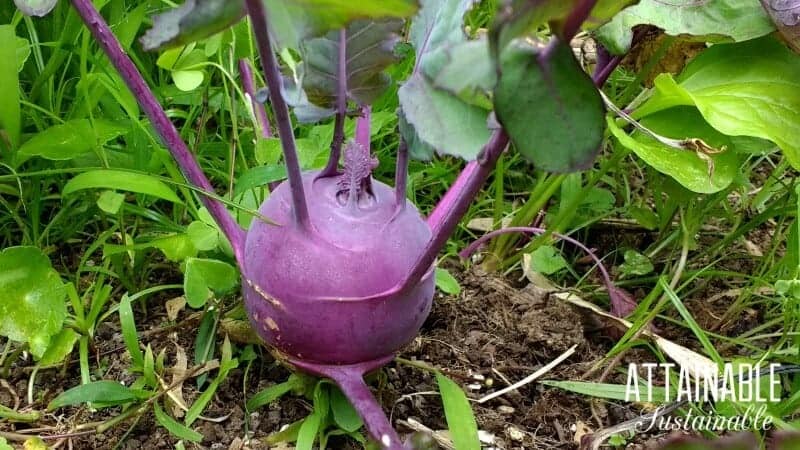
11. Feed Your Friends
It’s not unheard of for small vegetable gardens to morph into centers of productivity. An overabundance of vegetables means you can share your bounty. Fresh veggies for your friends and neighbors! Have even more? You can donate the surplus to the local food bank.
12. Education
People who don’t know anything about growing food will learn so much from watching your efforts.
Learning where our food originates. Understanding why bees are important, and thus taking action to prevent harming them. Witnessing composting in action to divert waste from the trash can. So many lessons!
13. Grow Food for Self Reliance
Growing your own food is just one more facet of living a more self-reliant lifestyle. If we’re going to own our lives and stop trusting corporations to provide what we need, growing a vegetable garden is a logical step to take. Be sure to read this for more on gardening for self-reliance. (I love this book!)
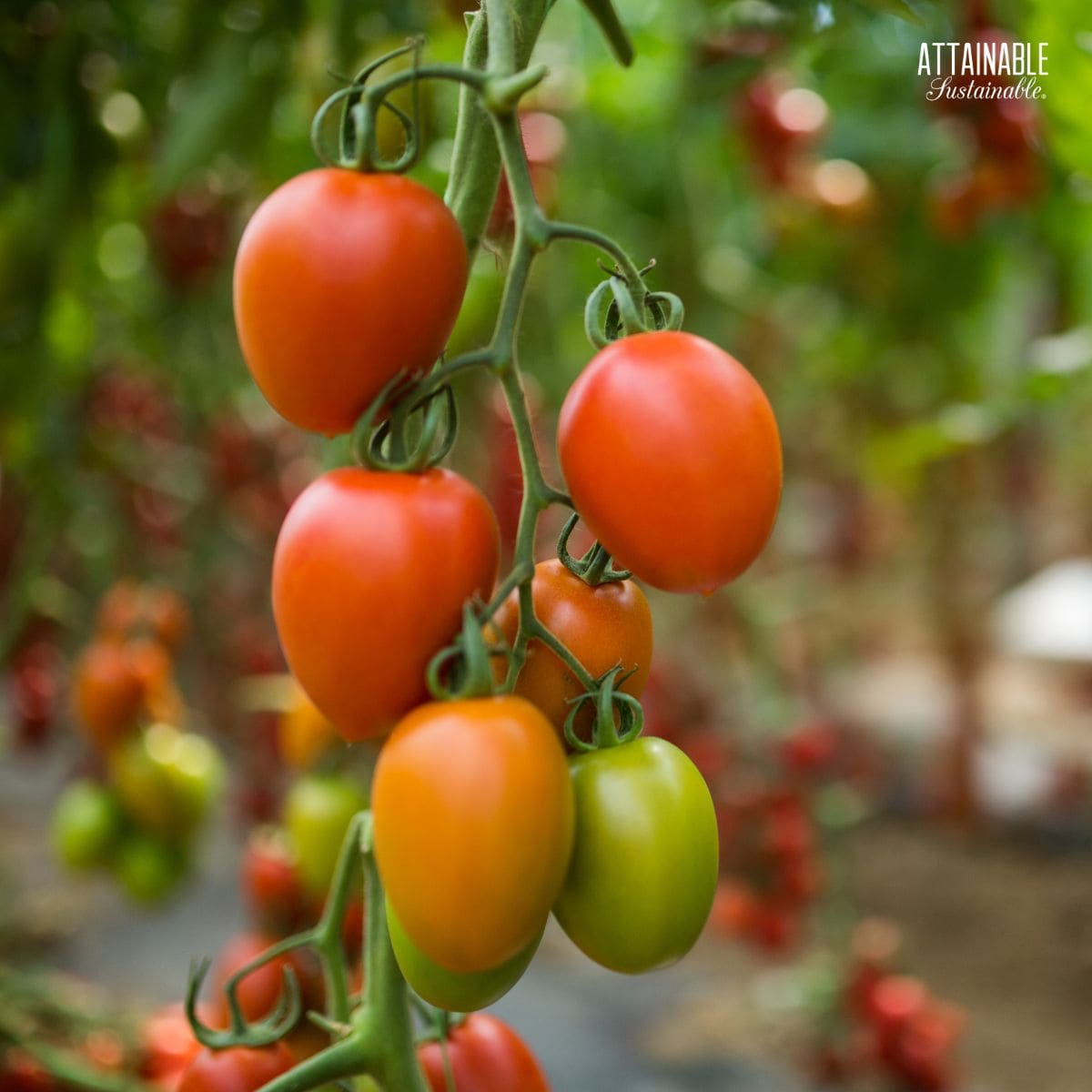
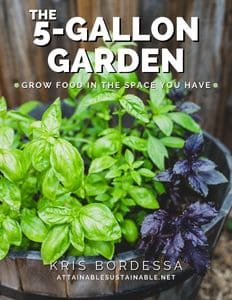
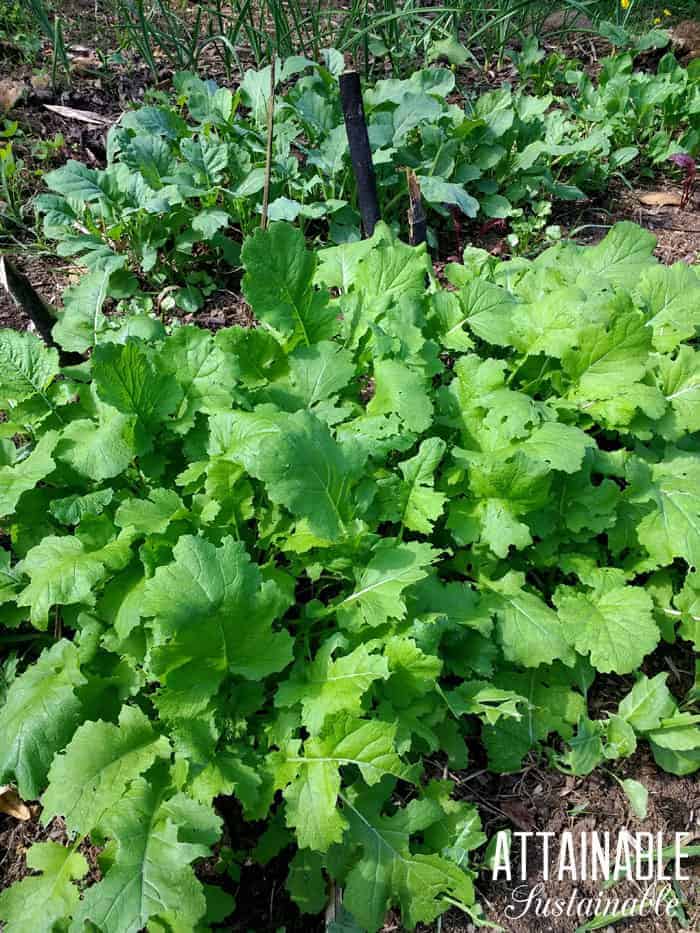
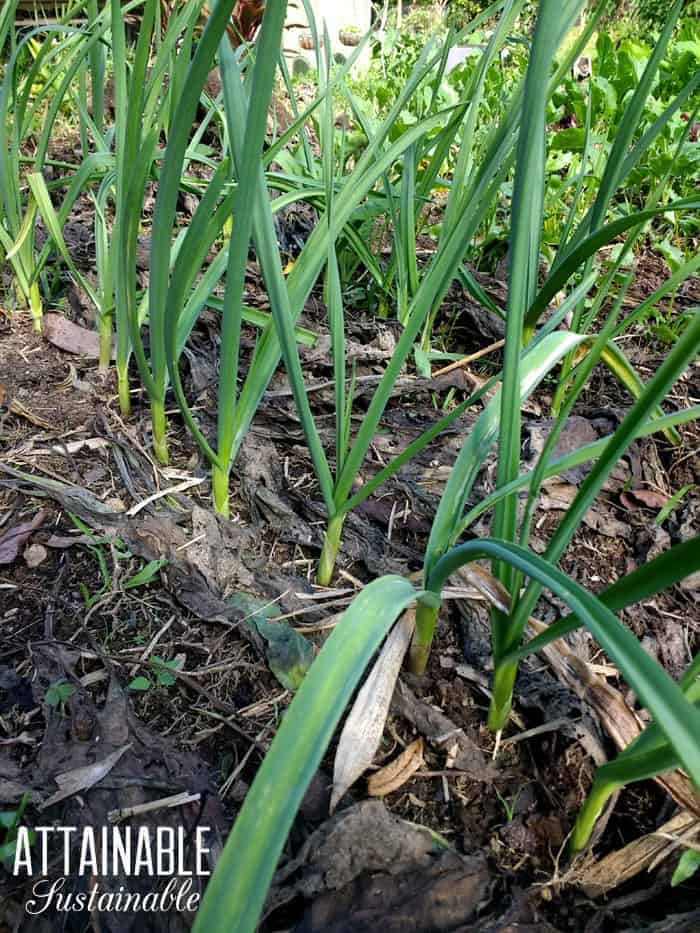
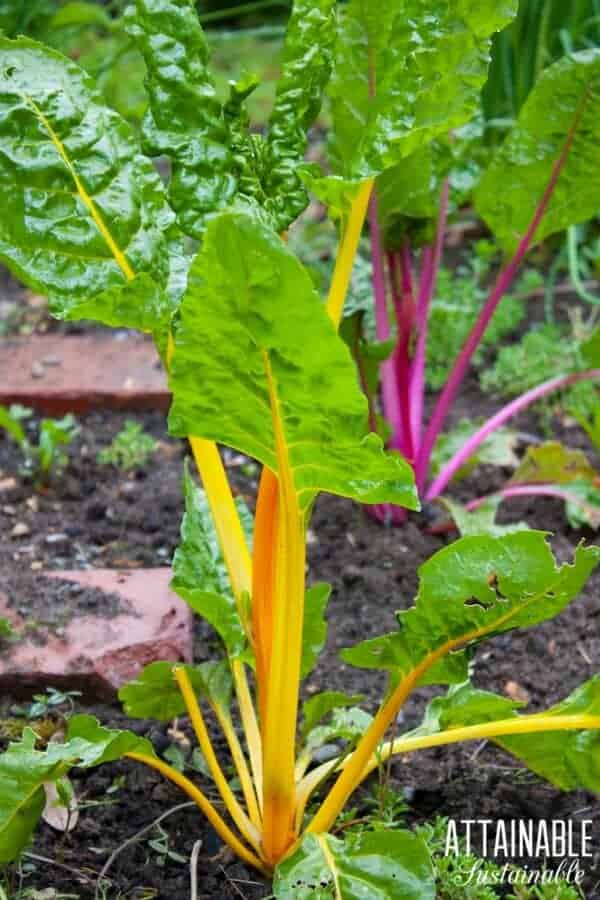
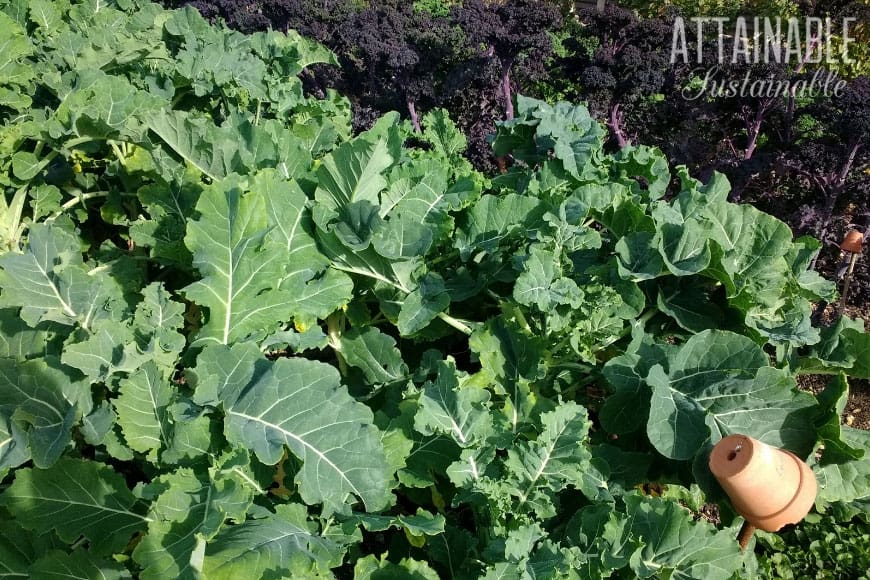
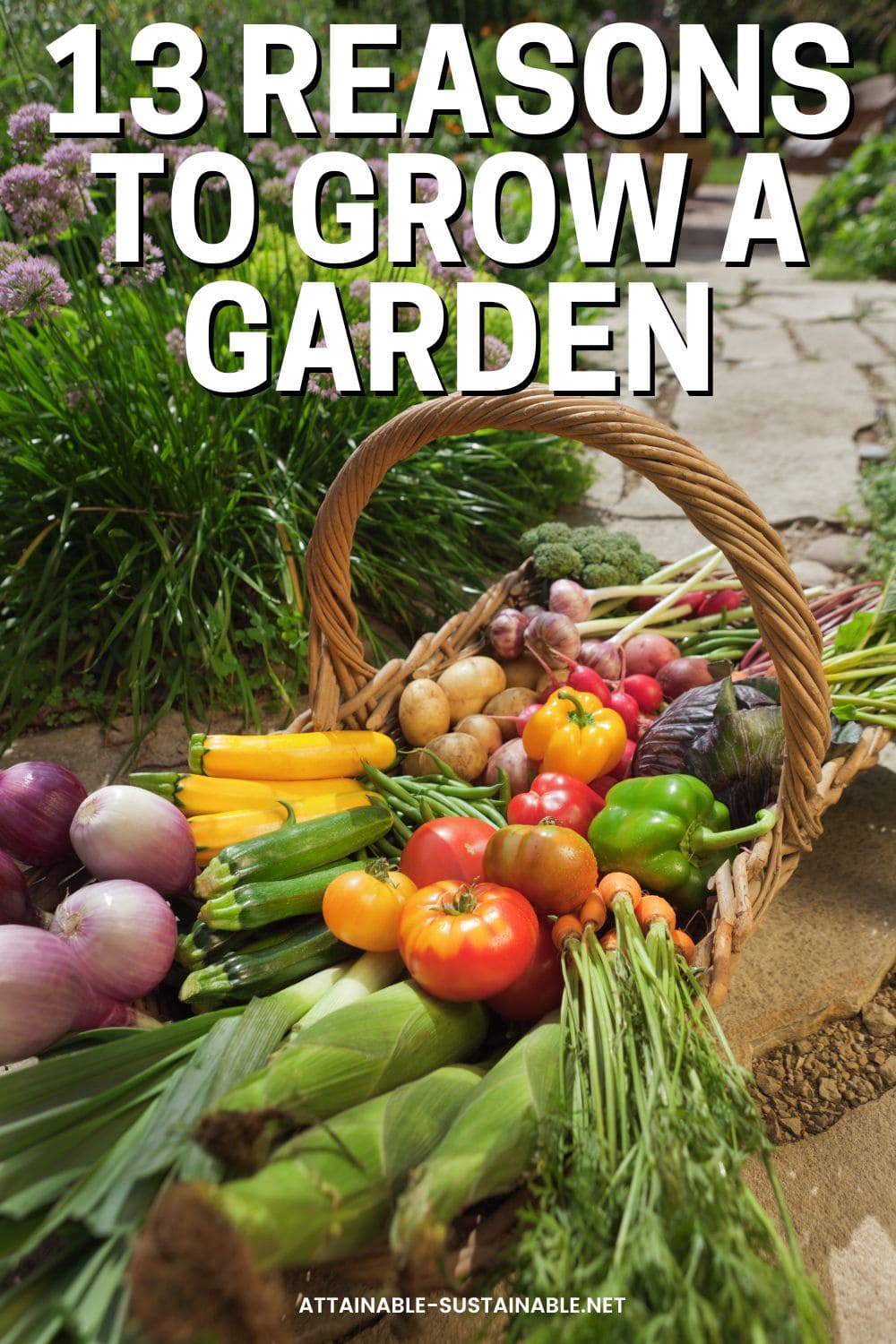

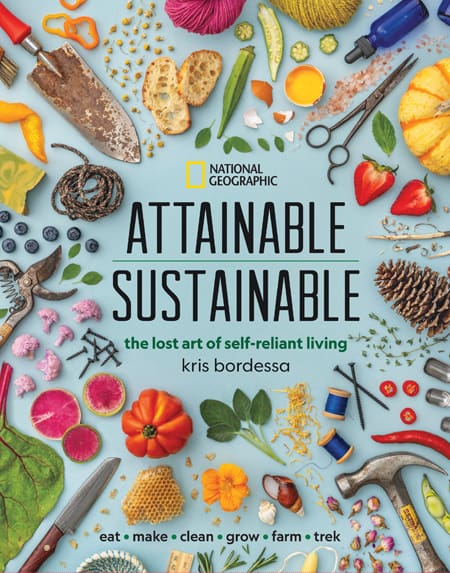
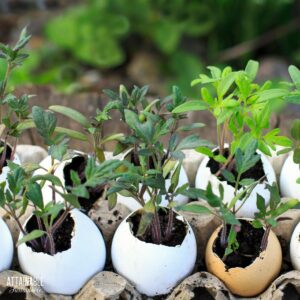
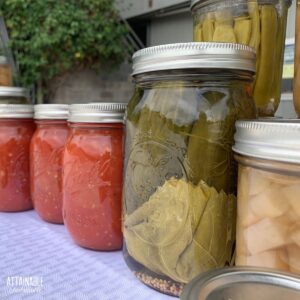

#14
Learning to appreciate a sliced vine-ripe tomato with a dash of salt, served between two slices of good bread and eaten over the kitchen sink.
Great! And how can those of us who live in apartment complexes that belong to someone else do this too?
I have a number of posts related to indoor gardening that might be useful: https://www.attainable-sustainable.net/category/indoor-gardening/
And something like this could work well if you have some balcony space: https://www.attainable-sustainable.net/vertical-garden-tower/
another BIG plus about growing your own food, or gardening in general, is that the microbes in the soil are natural anti depressants! Throw your prozac down the toilet and get your hands in the soil! https://www.gardeningknowhow.com/garden-how-to/soil-fertilizers/antidepressant-microbes-soil.htm